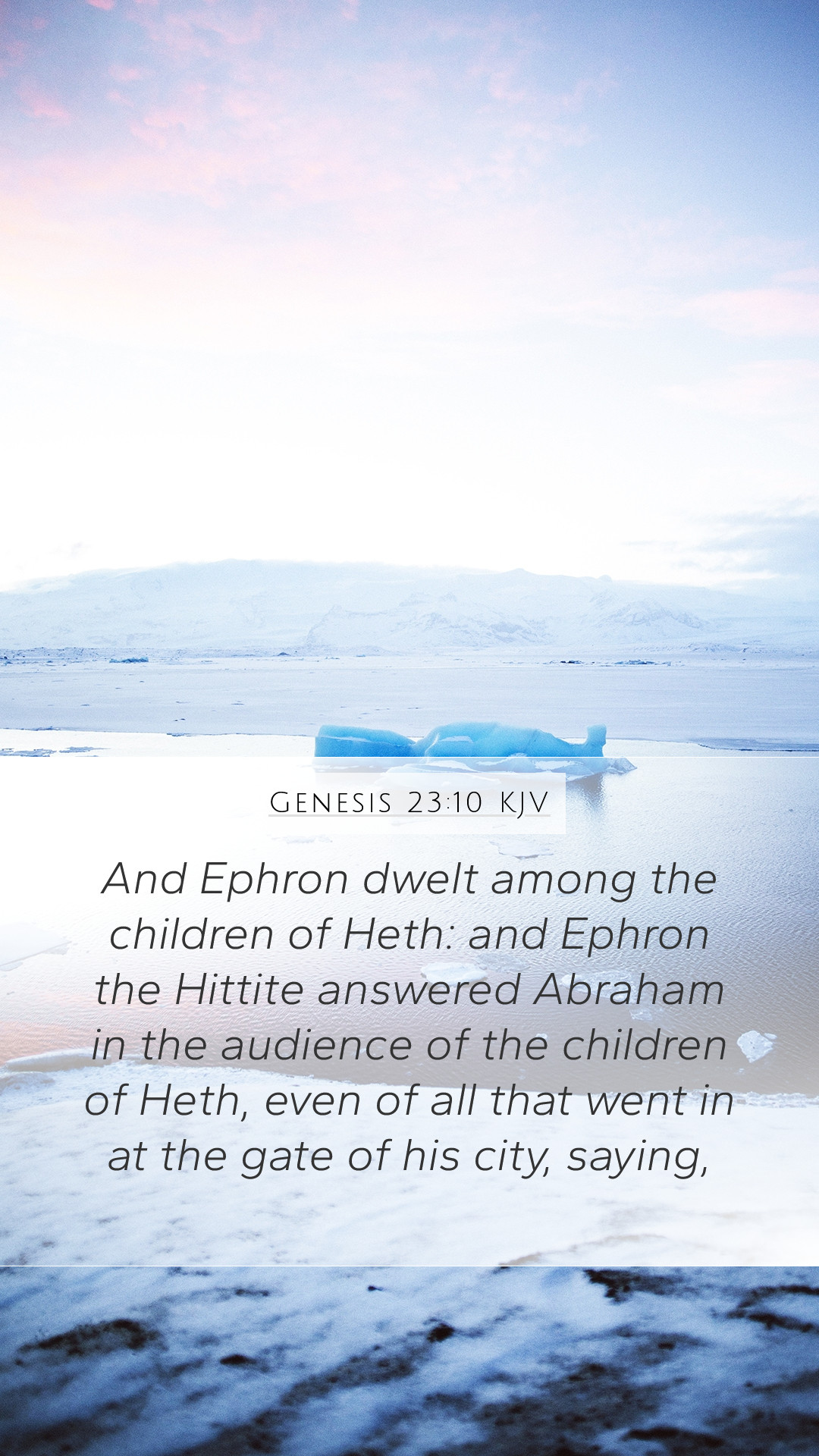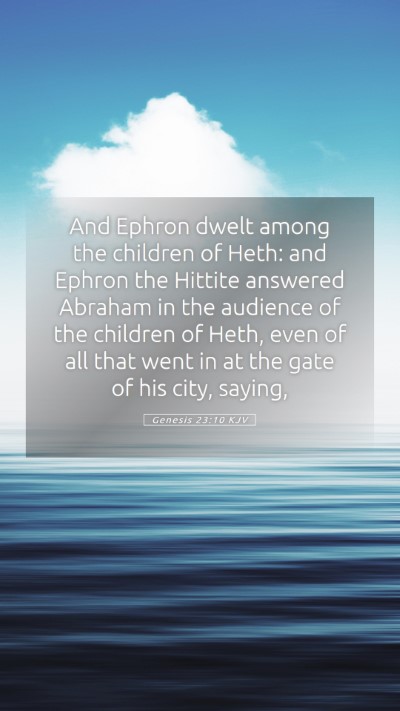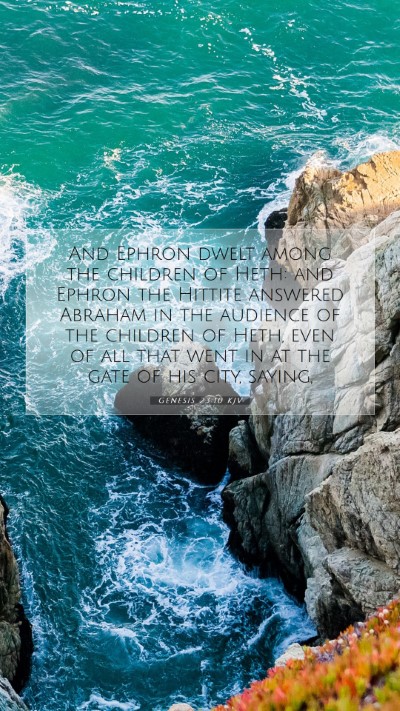Bible Verse Commentary on Genesis 23:10
Understanding the Bible can often be a profound journey, and Genesis 23:10 offers a glimpse into the narratives of faith, heritage, and the complexities of human interaction with divine promises. In this verse, we note the significance of Abraham's interactions regarding the land, which are crucial in the unfolding narrative of the Scriptures.
Verse Context
Genesis 23:10 states:
“And Ephron dwelt among the children of Heth: and Ephron the Hittite answered Abraham in the audience of the children of Heth, even of all that went in at the gate of his city, saying,”
Interpretative Insights
Based on the combined teachings of Matthew Henry, Albert Barnes, and Adam Clarke, below are various insights on the implications of this verse:
- Historical Context: This moment occurs after the death of Sarah, Abraham's wife. Here, Abraham seeks a burial place for her, which demonstrates his love and respect.
- Abraham’s Faith: Despite not owning land in Canaan, Abraham remained steadfast in his faith regarding the promise of God that this land would belong to his descendants.
- Interpersonal Relations: The dialogue with Ephron emphasizes the importance of respect and honor in negotiations. Abraham was careful to conduct himself appropriately among the Hittites, which reflects his character and the values of the time.
- Geopolitical Significance: The Hittites were a significant presence in the region, and Abraham's dealings with Ephron underscore the need for alliances and respect in acquiring land, which is crucial for the narrative's advancement.
- Symbolism of the Gate: The mention of the gate signifies a place of public discourse and legal transactions, which adds weight to the agreement being reached.
- Legacy and Possession: Abraham's request to purchase a burial site signifies the beginning of his possession of land in Canaan, ultimately fulfilling God’s promises to him.
Spiritual Applications
The in-depth analysis of this verse shows valuable lessons that can be applied to our lives today:
- The Importance of Faith: Like Abraham, we are called to trust in God's promises, even when we do not see their fulfillment in our immediate circumstances.
- Respectful Negotiation: In our interactions, especially regarding important matters, we should strive for courtesy and integrity, reflecting God’s character in our dealings with others.
- Understanding Our Heritage: Just as Abraham honored the burial of his wife, we are reminded of the importance of honoring our own lineage and familial bonds.
Additional Cross References
- Genesis 12:7: The initial promise of land to Abraham.
- Genesis 13:14-15: God's reaffirmation of the land promise to Abraham's descendants.
- Genesis 25:9: The burial of Abraham, showing continuity of significance regarding the Promised Land.
Conclusion
Genesis 23:10 encapsulates deep meanings regarding faith, respect, and legacy. The verse exemplifies how vital interpersonal relationships are in the context of covenantal promises and land ownership. For those studying Scripture, this passage serves as an enriching resource for understanding the life of Abraham and the unfolding narrative of the Israelites.
In summary, grasping the meanings of Bible verses like Genesis 23:10 through various commentaries enriches our understanding of Scripture, helping us draw from historical lessons that still hold relevance in our modern lives.


